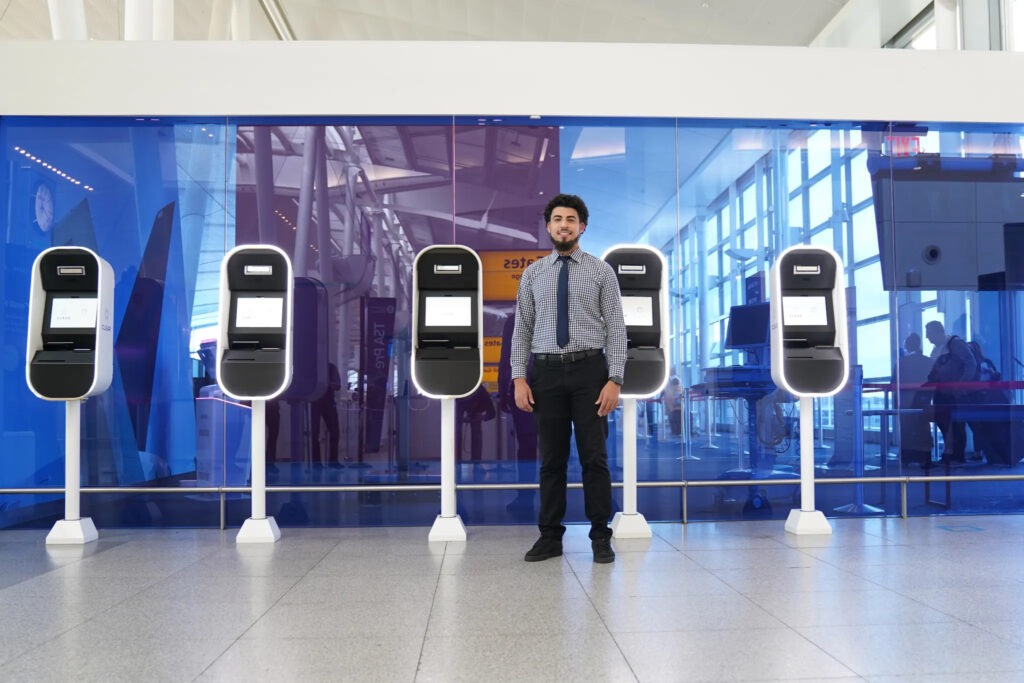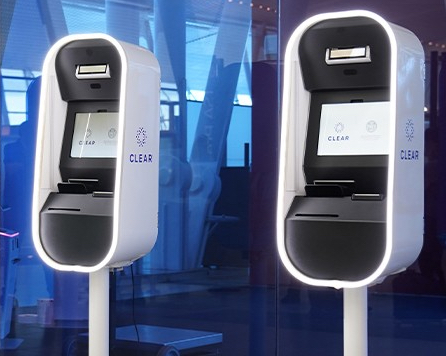Advertiser & Editorial Disclosure: The Bulkhead Seat earns an affiliate commission for anyone approved through the links below. This compensation may impact how and where links appear on this site. We work to provide the best publicly available offers to our readers. We frequently update them, but this site does not include all available offers. Opinions, reviews, analyses & recommendations are the author’s alone, and have not been reviewed, endorsed, or approved by any of these entities.
A new bipartisan bill aims to ban security screening company CLEAR from operating within the current security setup in California airports. The reason? Two senators say that it’s unfair that the service allows wealthier passengers to skip to the front of the Transportation Security Administration (TSA) lines because they can afford to do so.
There is a lot wrong with this argument and the senators’ logic is flawed. CLEAR is available to some elite flyers in both Delta and United’s frequent flyer programs. It’s also a reimbursable expense with certain credit cards (like some from American Express).

The bill would require CLEAR to provide its own dedicated security lane and not share those with regular security and/or TSA PreCheck®. CLEAR members are currently brought to the front of the line at TSA checkpoints after they have their eyes or fingerprints scanned at designated kiosks.
Many airports allow premium cabin customers, elite members, or those with Fast Track to go through their own designated lanes. Is this fair? It’s clearly preferential treatment, but access has been paid for by the customer. I don’t see this as much different. If separate lines are set up, then customers will still pay to use them.
Anthony’s Take: Hopefully, this bill doesn’t go anywhere as it’s addressing an issue that does not exist. CLEAR is not a service just for the wealthy and many (myself included) have never spent any money on it.
(Image Credits: CLEAR.)
User Generated Content Disclosure: The Bulkhead Seat encourages constructive discussions, comments, and questions. Responses are not provided by or commissioned by any bank advertisers. These responses have not been reviewed, approved, or endorsed by the bank advertiser. It is not the responsibility of the bank advertiser to respond to comments.
Advertiser & Editorial Disclosure: The Bulkhead Seat earns an affiliate commission for anyone approved through the links above This compensation may impact how and where links appear on this site. We work to provide the best publicly available offers to our readers. We frequently update them, but this site does not include all available offers. Opinions, reviews, analyses & recommendations are the author’s alone, and have not been reviewed, endorsed, or approved by any of these entities.

1 comment
“… it’s addressing an issue that does not exist.”
That is true for most of California law.